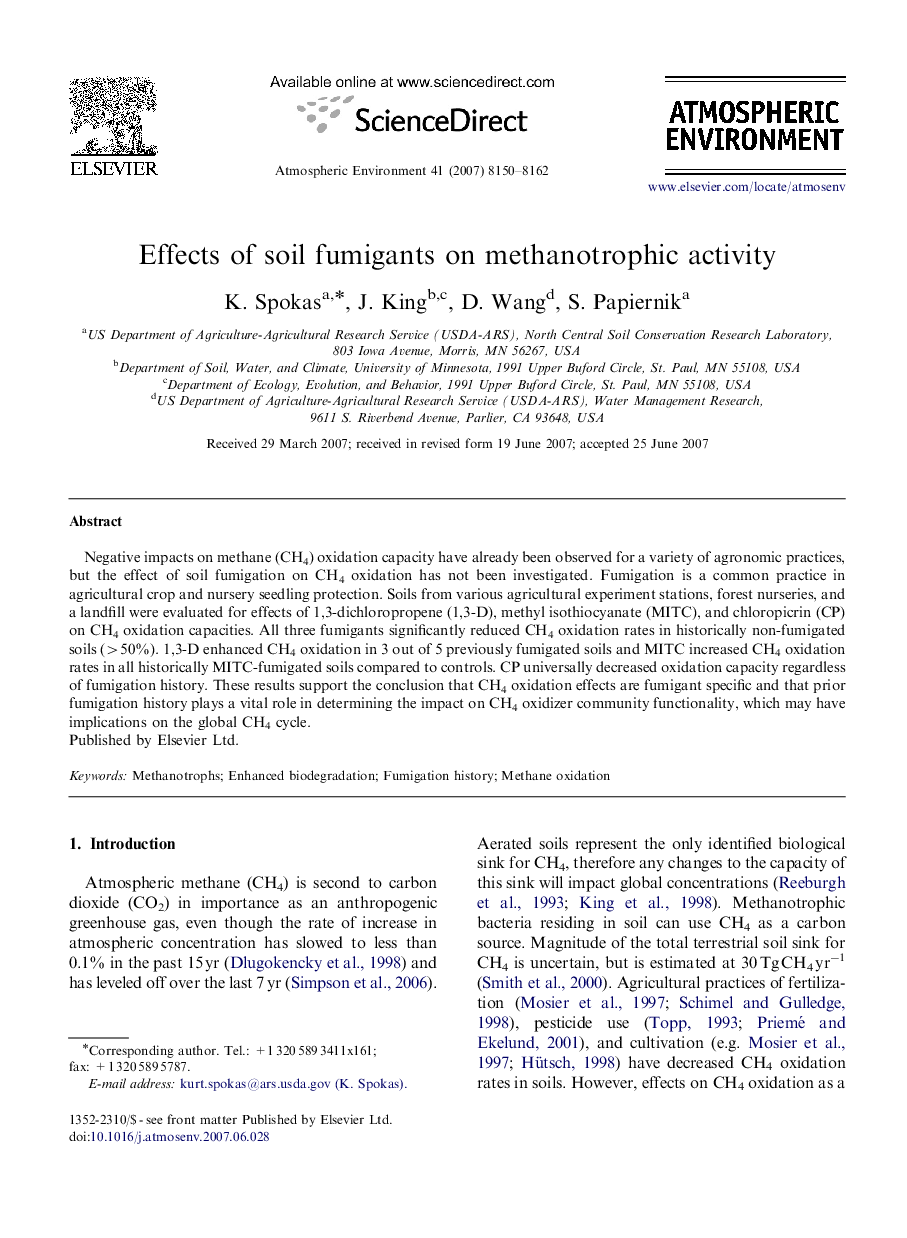| Article ID | Journal | Published Year | Pages | File Type |
|---|---|---|---|---|
| 4442969 | Atmospheric Environment | 2007 | 13 Pages |
Negative impacts on methane (CH4) oxidation capacity have already been observed for a variety of agronomic practices, but the effect of soil fumigation on CH4 oxidation has not been investigated. Fumigation is a common practice in agricultural crop and nursery seedling protection. Soils from various agricultural experiment stations, forest nurseries, and a landfill were evaluated for effects of 1,3-dichloropropene (1,3-D), methyl isothiocyanate (MITC), and chloropicrin (CP) on CH4 oxidation capacities. All three fumigants significantly reduced CH4 oxidation rates in historically non-fumigated soils (>50%). 1,3-D enhanced CH4 oxidation in 3 out of 5 previously fumigated soils and MITC increased CH4 oxidation rates in all historically MITC-fumigated soils compared to controls. CP universally decreased oxidation capacity regardless of fumigation history. These results support the conclusion that CH4 oxidation effects are fumigant specific and that prior fumigation history plays a vital role in determining the impact on CH4 oxidizer community functionality, which may have implications on the global CH4 cycle.
